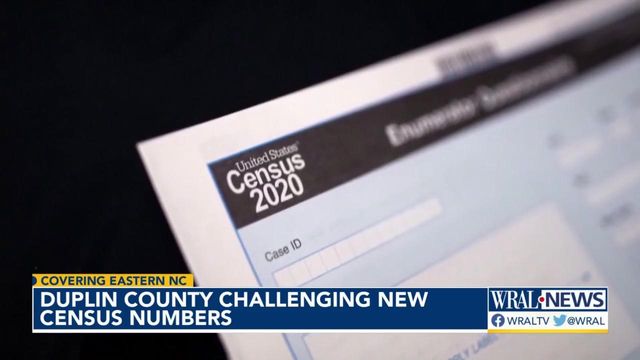Duplin County leaders challenge census numbers that show loss in population
New data from the 2020 census show more people are leaving from communities in Duplin County than almost anywhere else in the state. But Duplin County leaders say they believe the count was wrong – and they could push for a redo.
“I don’t think we have lost as much population as the census numbers reflect,” said the county's manager, Davis Brinson.
A breakdown of population data from the newly-released 2020 census highlighted which North Carolina counties have seen the greatest decline in population since 2010. Leading the way was Robeson County, which reportedly experienced a drop of more than 17,000 people in the past decade.
Right behind was Duplin County - an agricultural hub in the southeastern part of the state - where population fell by nearly 10,000 residents since 2010.
“Honestly, I’m shocked at the 2020 census numbers,” Brinson said. “Personally, I believe there’s been a significant undercount of our population in Duplin County.”
Brinson said less than half of county residents had responded to the online census before census takers arrived in person, and he said he feels that a lack of reliable broadband access in the county was to blame.
With the census directly tied to how much federal funding the county will receive in the coming years, officials have taken steps to set the record straight.
“We do plan to challenge the census numbers,” Brinson said. “I’ve already reached out to the Governor’s Office and spoken with the census liaison there.”
A spokesperson for the Office of State Budget and Management said counties could challenge the census numbers through a “count question resolution,” a year-and-a-half-long review process that would begin in January and focus on three factors, one of which would be how much of the county was covered.
The review would include “maybe neighborhoods, subdivisions, or congregate living facilities that were missed by census workers,” added Brinson.
If the review found problems with the data, Duplin County could pay for a special census, which would be a recount tailored to the area that the state’s census liaison said would be “very expensive.”
County leaders said they were open to pursuing the recount, but until the first review wraps up in 2023, they plan to focus on attracting people to Duplin County by investing in broadband access and more affordable housing options.
“We’ve done a good job in the last few years in the area of economic development, and we intend to build on that momentum,” said Brinson.
Brinson added that county leaders would have to weigh the cost of the recount against the amount of federal money they stand to lose from the census numbers before committing to pay for the recount.












